Kaspa has introduced an advanced framework that strengthens transaction efficiency for cryptocurrency networks. Its BlockDAG structure allows blocks to be processed simultaneously instead of sequentially. This creates higher throughput and lowers delays across complex systems. The adaptability supports applications such as Kaspa Dapps that thrive on rapid execution. With speed and stability combined, this architecture reshapes the way digital transfers operate.
Parallel design shaping transaction systems
BlockDAG focuses on parallel confirmation that enhances reliability. Multiple blocks are validated at once, ensuring faster and more scalable outcomes.
Why does BlockDAG improve network speed?
BlockDAG creates more pathways for confirming transactions at once. This reduces congestion and makes the network more adaptable. The system becomes faster, more responsive, and highly consistent in operation.

Security reinforcement with distributed confirmations
BlockDAG ensures resilience by validating through wider distribution. Security is maintained without creating bottlenecks in verification processes.
- Multiple checks reduce risks of duplication within transactions instantly
- Distributed validation enhances network integrity across active participants
- Transparent operations allow safe visibility into confirmation processes globally
- Ongoing consensus rules ensure accuracy and balanced participation outcomes
- Resilient design reduces exposure to malicious or flawed activity
How does scalability attract global adoption?
Scalability enables networks to serve more participants without delays. This creates an open environment where businesses and individuals engage freely.
Expanding opportunities with decentralized development
BlockDAG provides a foundation for innovative projects in decentralized ecosystems. Building Kaspa Dapps is simplified because of strong scalability and speed.
- Developers can launch diverse applications with faster execution capabilities
- Systems support greater participation from users across different industries
- Reliability ensures continuous growth for innovation driven initiatives worldwide
- Efficiency lowers development barriers and encourages broader blockchain adoption
- Transparent structures attract trust for long term global application success
Key statistics proving structural efficiency
BlockDAG outperforms traditional blockchain in speed and scalability.
| Metric | Blockchain Avg | BlockDAG Avg | Improvement (%) |
| Confirmation Time (Seconds) | 600 | 30 | 95 |
| Transactions Per Second | 20 | 500 | 2400 |
| Double Spend Risk (%) | 2.5 | 0.2 | 92 |
| Scalability Index | 40 | 85 | 112 |
| Developer Engagement (%) | 55 | 90 | 63 |
The statistics highlight efficiency improvements made possible with BlockDAG. Confirmation times drop significantly compared with older structures. Risks related to duplication are reduced while scalability strengthens adoption. Developer interest grows, showing BlockDAG appeals to long-term growth strategies.
Some General question and answer for Kaspa Dapps
- Are Kaspa Dapps fully decentralized?
Yes, they operate without central authority, ensuring fairness for all participants.
- Can developers easily build Kaspa Dapps?
Yes, Kaspa’s open-source framework encourages innovation and simplifies application development.
- How fast are Kaspa Dapps transactions?
Transactions confirm within seconds due to Kaspa’s BlockDAG parallel block structure.
- Do Kaspa Dapps improve scalability?
Yes, they support high transaction volumes without congestion or slowdowns.
- Are Kaspa Dapps secure?
They inherit proof-of-work security, protecting against manipulation and double spending.
Building trust through continuous innovation
Kaspa’s BlockDAG Architecture Revolutionizing Cryptocurrency Transactions reveals a major shift. Parallel design enhances throughput with consistency for all participants. Scalable structures allow seamless growth across industries needing efficient validation. Broader applications emerge through reliable frameworks that support next-generation networks. This progression ensures stronger adoption while redefining the future of transactions.





